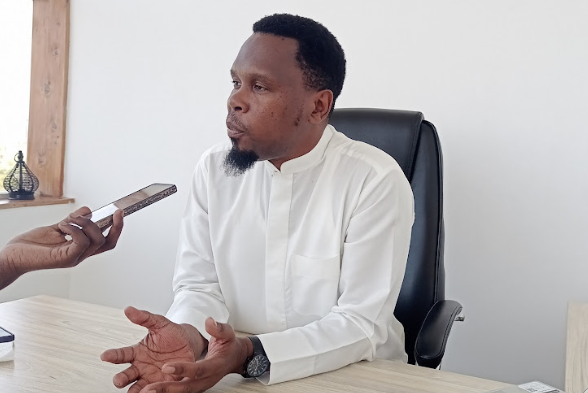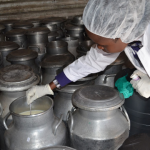Young people need to be more curious about available opportunities and actively develop their potential, according to Kenya Maritime Authority chairman Hamisi Mwaguya. Speaking on Wednesday, Mwaguya emphasized that while the blue economy sector offers many opportunities, it is essential for youth to be eager to learn and take full advantage of them.
Mwaguya noted that young people, particularly those on the Coast, often prioritize basic training over exploring long-term career opportunities. He specifically mentioned the Standards of Training, Certification, and Watchkeeping (STCW) endorsements required for seafarers.
“Many young people I’ve spoken with believe that obtaining the STCW is enough to secure jobs in the maritime sector,” Mwaguya said.
“However, you need a specific skill or career for the STCW to be beneficial. You must first be a cook, plumber, electrician, or waiter for the STCW to be valuable aboard a vessel.”
He clarified that the STCW provides basic safety training, which enhances one’s existing career.
There have been calls from political leaders to decentralize maritime studies so that the STCW course can be offered at local polytechnics and Technical Vocational Education and Training (TVET) institutions. Currently, the Bandari Maritime Academy is the only institution offering such studies, which has been seen as inconvenient.
While Mwaguya acknowledged that decentralizing maritime studies is a good idea, he pointed out that it would require significant investment and improved infrastructure.
“Certain standards are necessary for an institution to administer the STCW, including qualified trainers, appropriate equipment, and sufficient student availability,” he said.
Mwaguya made these remarks at the pre-launch of the first Blue Economy Innovation and Investment Summit at Sote Hub in Nyali. The conference, scheduled to be held at Whitesands Beach Hotel in Mombasa from October 2-4, will provide a platform for youth to showcase their creativity and seek financial support.
Sote Hub director David Ogega highlighted that the blue economy sector offers many employment opportunities that need to be tapped.
“However, it’s essential to make these opportunities known to the youth,” Ogega said.
The summit will bring together stakeholders to discuss various challenges affecting the blue economy, including climate change, access to capital, and technology. Ogega added that funding for MSMEs remains a significant challenge for many innovative and creative young people.
He noted that, in addition to providing guidance on maritime matters, the Kenya Maritime Authority (KMA) also offers advice to ensure the best return on investment.
The EU Ambassador to Kenya, Henriette Geiger, is set to be the chief guest at the summit, which expects participation from 500 stakeholders.
Hamid Shehan, County Chief Officer for Environment and Solid Waste Management, praised Sote Hub’s efforts. He acknowledged that the youth have been overlooked for a long time and recognized Sote Hub’s role in helping the government connect with this demographic.
Shehan stated that young people often feel disenfranchised because their views are not considered, and the time has come to give them space and opportunities.



